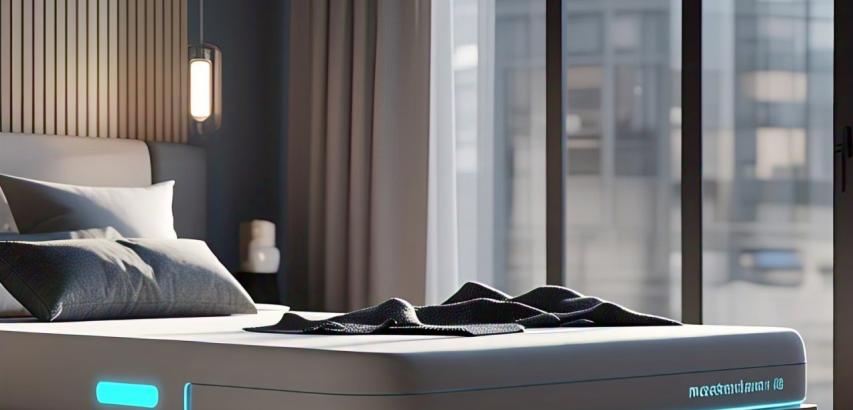A smart mattress is an innovative sleep solution that integrates advanced technology to enhance sleep quality, comfort, and health monitoring. Unlike traditional mattresses, these intelligent systems use sensors, connectivity, and automation to adapt to individual needs, providing a personalized sleep experience. Here’s an in-depth look at their features, benefits, and impact:
Key Features of Smart Mattresses
Sleep Tracking Sensors:
Embedded sensors monitor sleep stages (light, deep, REM), heart rate, breathing patterns, and movement.
Data is synced to smartphone apps (e.g., Sleep Number’s SleepIQ, Eight Sleep’s app) for detailed insights.
Temperature Regulation:
Dual-zone cooling/heating systems (e.g., Eight Sleep Pod) adjust bed temperature dynamically to prevent night sweats or chills.
Adjustable Firmness:
Air chambers or foam layers allow users to customize firmness levels via remote control or app (e.g., Sleep Number 360).
Smart Home Integration:
Connects with devices like Alexa, Google Home, or Apple Health to automate routines (e.g., dimming lights when you fall asleep).
Motion Isolation:
Memory foam or responsive coils minimize partner disturbance, ideal for couples.
Health Monitoring:
Detects snoring, sleep apnea, or irregular heart rhythms and provides actionable recommendations.
Benefits
Personalized Comfort: Tailors support and temperature to individual preferences.
Improved Sleep Quality: Addresses issues like overheating, back pain, or restlessness.
Health Insights: Identifies trends in sleep patterns and links to overall wellness.
Convenience: Remote adjustments and automation streamline bedtime routines.
Popular Brands & Models
Sleep Number 360: Adjustable air chambers with biometric tracking.
Eight Sleep Pod Pro: Combines temperature control, sleep tracking, and AI-driven insights.
Tempur-Pedic TEMPUR-Ergo Smart Base: Adjustable base with sleep tracking and massage features.
Casper Wave Hybrid: Zoned support foam with sleep analytics.
Challenges & Considerations
Cost: Priced could be more than 500$, making them a premium investment.
Privacy Concerns: Data collection on sleep habits requires robust cybersecurity measures.
Tech Reliance: Malfunctions or software glitches could disrupt functionality.
Future Trends
AI-Driven Adaptations: Mattresses that learn preferences and auto-advertise nightly.
Advanced Health Integration: Early detection of conditions like sleep apnea or stress.
Sustainability: Eco-friendly materials and energy-efficient designs.
Holistic Sleep Ecosystems: Integration with wearables, lighting, and sound systems.
Smart mattresses represent a leap forward in sleep technology, merging comfort with cutting-edge health insights. While the cost and privacy considerations may give some pause, their ability to transform sleep quality makes them a compelling choice for tech-savvy users and health-conscious individuals. As innovation accelerates, these mattresses will likely become central to the smart home ecosystem, redefining how we rest and recharge.
Sleep smarter, not harder—the future of rest is here. 🛌💡
 |  |  |
